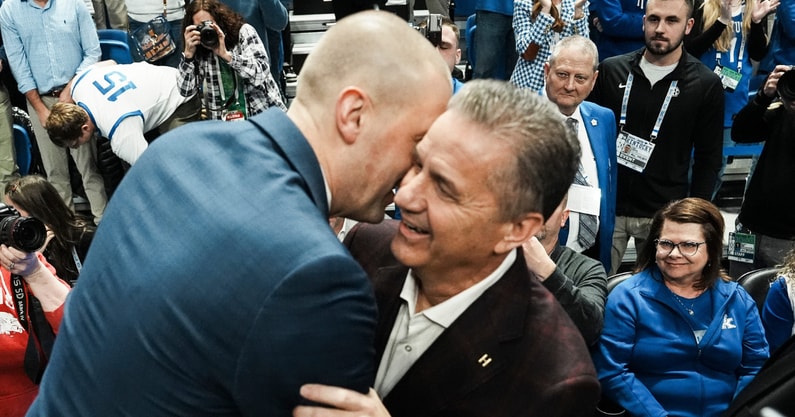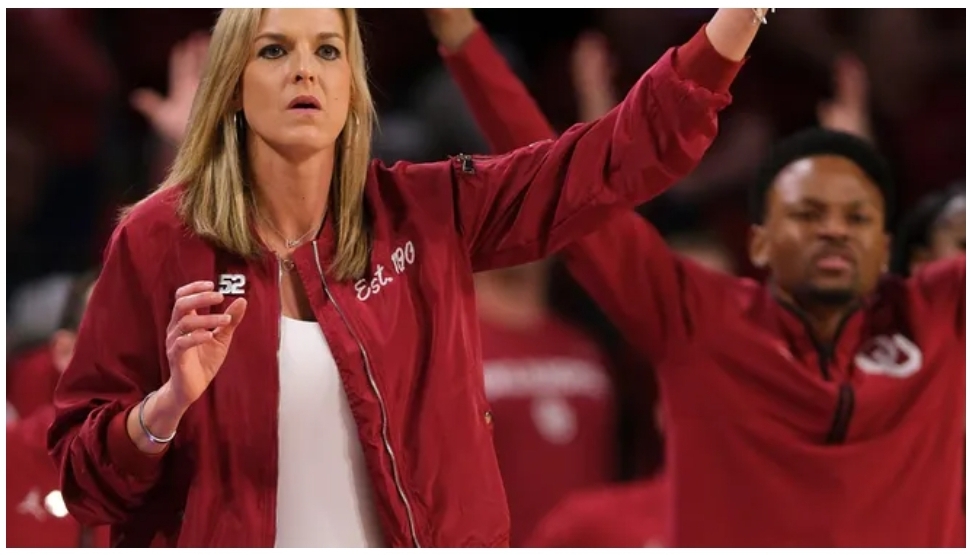Former Michigan State Spartans and National Champion Jason Richardson, speaks up on 3 things DESTROYING
Former Spartan Jason Richardson Slams Modern College Sports Landscape
Former Michigan State Spartan and National Champion Jason Richardson has once again stirred debate in the world of college athletics. In a series of hard-hitting statements on social media, Richardson, who is widely respected for his competitive fire during his collegiate and professional career, identified three major issues that are “destroying” college football and basketball: the timing of the transfer portal, the unchecked unlimited entry allowed in the portal, and the growing influence of prop bets on college games.
Video: A Voice of Experience
Richardson’s career at Michigan State, where discipline and fundamentals were paramount, has given him a unique perspective on today’s rapidly evolving college sports environment. “When I played, it wasn’t just about the talent on the court or the gridiron; it was about commitment, team unity, and respect for the game,” Richardson said in a recent interview. “What I see now is a shift that’s undermining those very principles.”
His comments come at a time when college sports are undergoing unprecedented change, with rules and external influences reshaping team rosters and game-day atmospheres alike.
1. Video: Transfer Portal Timing – A Double-Edged Sword
Richardson’s first grievance is with the timing of the transfer portal. He argues that allowing the portal to open during critical periods—such as March Madness for basketball and bowl season for football—creates instability. “It’s like opening Pandora’s box right when teams are trying to peak,” he lamented. Richardson pointed to recent moves where top recruits or key players have made last-minute transfers, leaving coaches scrambling to adjust their rosters in the middle of high-pressure tournaments.
Critics say that the portal has given athletes more freedom and agency, but Richardson contends that this freedom comes at a cost. He believes that allowing transfers during such crucial windows disrupts team chemistry and forces coaches to abandon long-term strategies in favor of last-minute fixes. “Coaches spend months, sometimes years, building their systems,” he explained. “Now, they have to deal with the fallout of roster changes in the middle of their seasons. That’s not fair to anyone involved.”
Recent changes by the NCAA to shorten the transfer window—like the new 30-day period for basketball and the split window for football—aim to provide more structure. However, Richardson maintains that the timing is still off. He notes that even with shortened windows, the portal’s availability during major tournaments forces teams to focus on short-term gains rather than sustained development.
2. Unlimited Transfer Portal Entry – A Recipe for Roster Chaos
Richardson’s second concern is perhaps the most controversial: the unlimited entry allowed in the transfer portal. Once a player is eligible to enter, there’s no cap on how many can do so, a system that, according to Richardson, has led to rampant roster instability across conferences. “When you have no limits, you’re bound to see a lot of churn,” he said. “It’s become too easy for players to jump ship for marginal reasons, and that undermines the whole team concept.”
He highlighted that during the 2023–2024 season, a significant percentage of scholarship athletes—upwards of 25% in some FBS programs—used the transfer portal. Richardson argued that while player mobility can sometimes lead to new opportunities, it also means that teams are constantly left in limbo. Coaches are forced into a reactive mode rather than focusing on building a cohesive squad. In his view, the unlimited nature of the portal encourages a “win-now” mentality where loyalty and development are secondary to short-term success.
This trend is particularly worrisome for power conferences, where the competitive balance could be disrupted by a flurry of transfers. “If you can transfer without limitations, it erodes the idea of commitment,” Richardson asserted. “Players should have the freedom to move, yes, but there needs to be a safeguard so that teams can plan and build for the future.”
3. Prop Bets on College Games – Commercializing the Spirit of Competition
The third and perhaps most alarming issue raised by Richardson is the advent of prop bets on college games. With sports betting becoming increasingly mainstream and legalized in various states, prop bets have infiltrated college sports, altering the nature of the competition. “College games used to be about pride, passion, and pure athleticism,” Richardson stated. “Now, they’re starting to look like spectacles for gambling.”
Richardson’s concerns focus on how prop bets can influence game integrity. When significant sums of money are wagered on individual player performances or specific in-game occurrences, there’s an inherent risk that the purity of competition is compromised. He fears that external pressures from the betting industry could incentivize actions that do not align with fair play. “There’s a danger that the focus shifts from competing for your school and teammates to catering to bookmakers and bettors,” he explained.
Moreover, the presence of prop bets can create distractions for players and coaches alike. The once-clear line between athletic performance and off-field commercial interests has blurred. Richardson warned that if unchecked, the influence of prop bets could lead to scenarios where decisions on the field are second-guessed not by the desire to win a championship but by the odds offered on a given play or outcome.
Industry Reaction and Broader Implications
Richardson’s remarks have sparked a mixed reaction among the sports community. Coaches and veteran athletes have expressed sympathy for his perspective, noting that while change is inevitable, it should not come at the expense of the foundational values of college sports. “There’s merit to what he’s saying,” remarked one longtime coach. “Stability is key, and while we embrace modernity, we must protect the core integrity of the game.”
On the other hand, proponents of the current system argue that the transfer portal and sports betting are simply reflections of a broader cultural shift. They maintain that these elements offer more freedom and entertainment to athletes and fans, respectively. However, Richardson’s call for balance resonates with many who feel that the essence of college sports is at risk.
A Call for Reform and Future Directions
In his passionate discourse, Richardson did not merely criticize—he called for thoughtful reform. He proposed that the NCAA revisit the timing of the transfer portal to ensure it does not coincide with major tournament play. Additionally, he suggested that a cap or regulation on the number of transfers could be implemented to help stabilize rosters. Finally, he urged regulatory bodies to scrutinize the growing market of prop bets on college games, ensuring that the sport’s integrity remains intact.
Richardson’s comments serve as a stark reminder that while evolution in college sports can drive innovation and increased competitiveness, it must be tempered with a respect for tradition and the long-term development of athletes. “We need to strike a balance,” he said. “There’s no question that players deserve opportunities and that fans want excitement, but we can’t let these changes undermine the spirit of college competition.”
Looking Ahead
As college football and basketball continue to evolve under the pressures of modern commerce and shifting player dynamics, voices like Jason Richardson’s provide a critical counterbalance. His experience, grounded in a time when discipline and commitment reigned supreme, offers valuable insight into how far the sport has come—and how much it might lose if these trends go unchecked.
In the end, the debate over the transfer portal and sports betting is about more than just rules and regulations; it’s about preserving the very soul of college sports. Richardson’s call to reexamine these practices is a rallying cry for all who believe that the future of college football and basketball must be built on both innovation and tradition. Whether his suggestions will spark meaningful reform remains to be seen, but one thing is clear: the conversation he’s ignited is one that the entire sports community can no longer afford to ignore.





